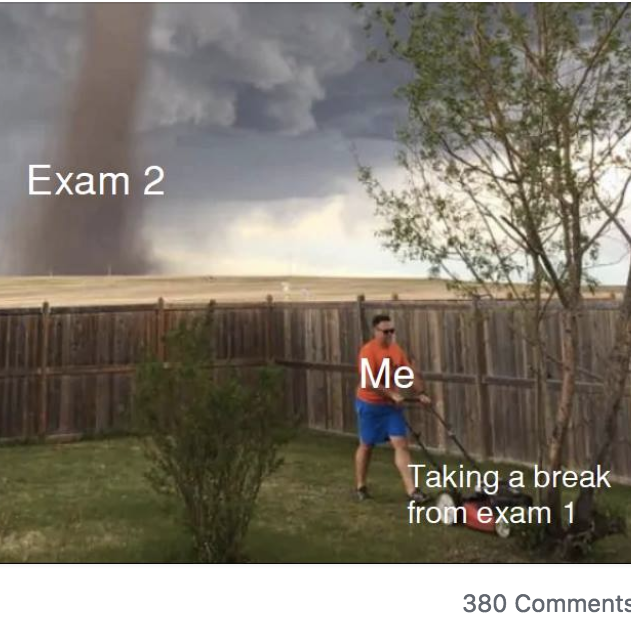A dangerous trio: Exams, stress and anxiety
🔗 [SYSTEM UPDATE] Link found. Timestamp incremented on 2025-11-26 13:55:13.A conversation about the damaging effects of exam stress erupted after a student posted on Monash StalkerSpace about a friend who suicided. VICTORIA KARALIS reports.


By VICTORIA KARALIS
A conversation surrounding the mental health of students and exam stress erupted after a status was posted to Monash StalkerSpace about a student who committed suicide.
Maddie Harold, who sparked the discussion with a post about a friend who took her own life, said it was important for people to seek help.
StalkerSpace has recently been flooded with often-dark memes about exams.
"Those who find all the 'depressed' memes that bit too real – it's anything but easy but please reach out, tell someone if you feel it's all too much, go part time/defer, do something, but don't stop fighting, please," Ms Harold wrote in her post.
"Lost my 19yo friend to suicide this week last year, with uni pressure being a significant contributor to her struggle with mental illness. I'd hate for this to happen to someone else."

Facing another season of exam memes, Ms Harold said they sometimes became a bit much.
"At one point I was so stressed and upset over uni that I couldn’t laugh at them any more, because they didn’t feel like funny exaggerations but just reminders of how bad everything was/felt."
She also suggested there should be improvements to the special consideration system.
"My experience with it was extremely stressful and tedious which isn’t what you need a few days after finding out your friend has died. I heard the exact same thing from a uni friend this year when a relative of hers passed away."
Mental Health Champion Ambassador Sarah Sullivan said the exam period could place enormous pressure on students.
"Students can often feel isolated during this time of year, as they are unsure as to how exactly to study and if what they’re currently doing is productive enough or requires further work."

"[Memes] can simultaneously be a source of comfort for students, however also indirectly perpetuate the already ingrained social stigma surrounding mental health," she said.
Ms Harold said the high levels of assessment at the end of semester added to stress.
“University isn’t about being easy, however I feel like certain assessments could be distributed more evenly across semesters, so that students aren’t faced with massive waves of work.”
Australian Government research has shown that young people aged 16 to 24 are the most likely to have a mental disorder, with one in four being diagnosed.
The Mental Health Champions use student ambassadors and focus on normalising the conversation around mental health for students.
Ms Sullivan said it was important to treat any request for help with the utmost seriousness “even if it appears ambiguous on the surface, because some people are very skilled at hiding particular things”.
Monash University has an array of counselling services available to students and staff.

The services were great, but not communicated effectively enough to students in a “feasible and user-friendly manner”, Ms Sullivan said.
"This leaves many students ill-prepared and lost in how to access this support."
Students need to be reminded if university starts to become too overwhelming and they start to experience stress and anxiety, to address it sooner rather than later.
Ms Sullivan said the most important piece of advice she could give to someone suffering from stress and anxiety due to uni work would be "to ask them to be kinder to themselves".
Despite the stigma around low grades, it was important to remember that “a person is a collection of skills, values, qualities, experiences, memories, relationships and love, not just a number that you receive at the end of the semester.”
Ms Harold said her advice would be to "talk to people about how you’re feeling".
"It doesn’t have to be some intense, formal conversation that’ll stress you out even more. Just make sure the people who care for you are aware of how you’re really going.
"If uni does reach a point where it’s just too overwhelming, step back and always put yourself first."
HELPFUL RESOURCES
Lifeline: 13 11 14
Kids Help Line (up to 25 years): 1800 55 1800
Beyondblue Support Service: 1300 224 636
Monash counselling service: 1300 360 364





